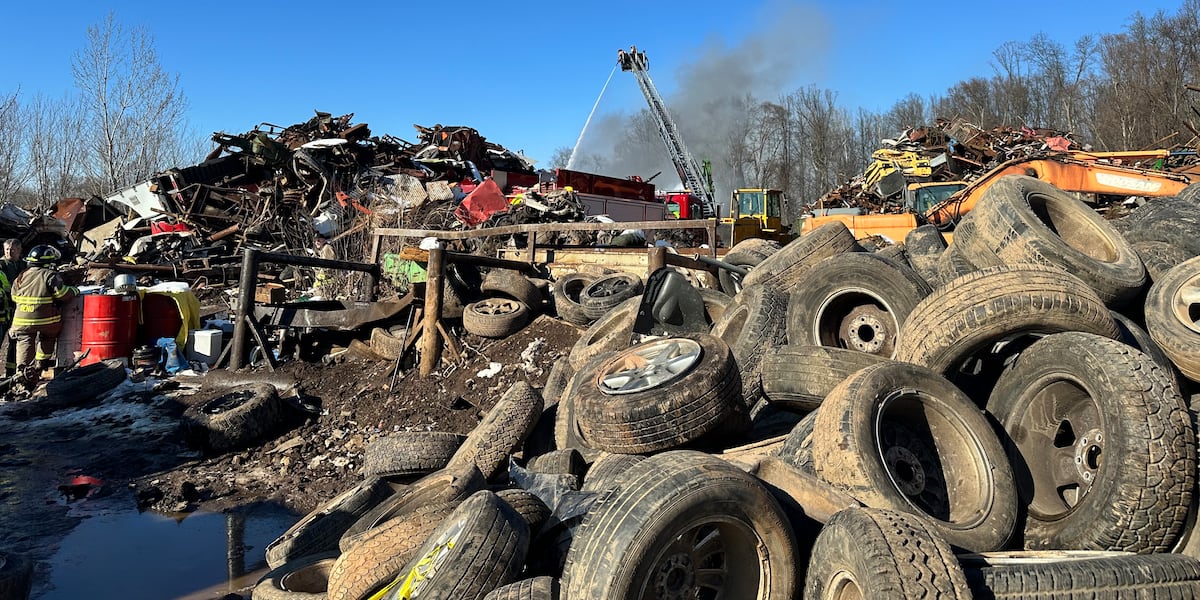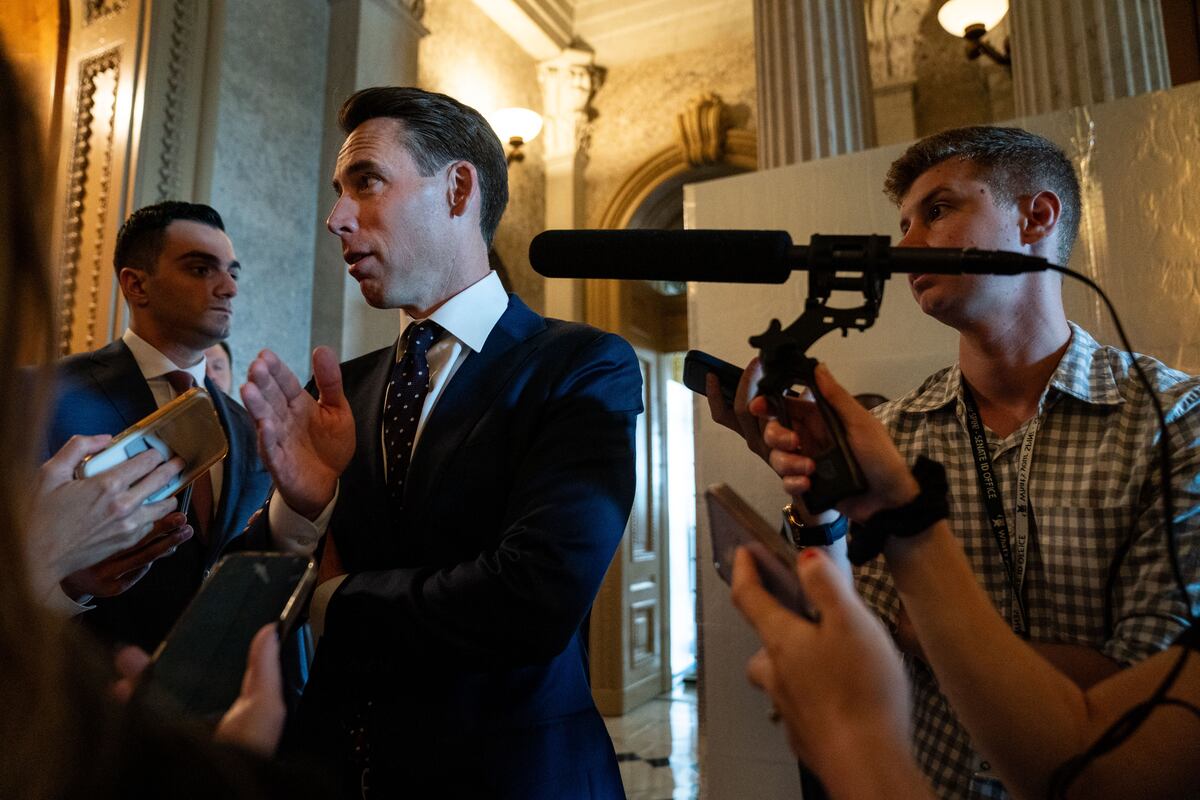Washington
Five questions for Washington amid bloodshed in Israel and Gaza

The world is reeling as it watches events in Israel and Gaza.
As of Monday afternoon, around 800 Israelis had been confirmed dead as a result of Hamas’s surprise attack. Around 700 Palestinians had been killed in response.
The crisis has no immediate end in sight. On Monday, Israeli Prime Minister Benjamin Netanyahu pledged that “though Israel didn’t start this war, Israel will finish it.”
Netanyahu also contended, in relation to Hamas, that Israel “will exact a price that will be remembered by them and Israel’s other enemies for decades to come.”
For its part, Hamas said that it would execute hostages — and broadcast the executions — in response to future bombings of civilian housing by Israel.
The grim situation has big implications for American politics, too.
Beyond the devastating human toll in the Middle East, here are some of the biggest questions confronting Washington.
Was Iran behind the attack?
This is one of the biggest questions. It has not yet been answered in a definitive way.
Iran is a key supporter of Hamas, and of several other Palestinian armed groups.
But backing for the overall cause does not necessarily translate into knowledge of the specifics of the plan to invade Israel.
The most concrete report of Iranian involvement so far came in a Wall Street Journal story on Sunday.
The Journal’s reporters wrote that Iranian security officials had given “the green light” for the attack at a recent meeting in Beirut.
The story also included the claim that “officers of Iran’s Islamic Revolutionary Guards Corps had worked with Hamas since August” to conceive the invasion.
The Journal’s most dramatic claims were sourced to unnamed “senior members of Hamas and Hezbollah.” But it also included denials, both from a Hamas official and from a spokesperson for the Iranian mission to the United Nations, that there had been coordination.
Notably, neither the American government nor the Israeli government has stated definitively that Iran was involved.
A spokesperson for the Israel Defense Force (IDF) told Politico on Monday that “we have no evidence or proof” Iran was behind the attack, though he added that Israel was certain “the Iranians were not surprised.”
Secretary of State Antony Blinken told CNN’s “State of the Union” on Sunday, “We have not yet seen evidence that Iran directed or was behind this particular attack, but there is certainly a long relationship.”
The question of Iranian involvement is so vital because, were it to be proven, both Israel and the United States would be obligated to take some kind of action against Tehran — which in turn could enlarge the conflict.
How big are the political dangers for President Biden?
Republican presidential candidates have been lining up to bash President Biden for what they contend is his weakness on the international stage.
In particular, they’ve been condemning the deal reached in August that unfroze $6 billion in Iranian funds in return for the release of five Americans.
Former President Trump said Biden had whittled away at Middle East peace “at a far more rapid pace than anyone thought possible.”
Florida Gov. Ron DeSantis wrote on social media that “Iran has helped fund this war against Israel and Joe Biden’s policies that have gone easy on Iran have helped fill their coffers.”
And former United Nations Ambassador Nikki Haley told NBC’s “Meet the Press” on Sunday that Blinken’s claim that the $6 billion could not have been used in the attack — since it is restricted to humanitarian purposes — was “irresponsible.”
On one level, the attack on Israel plays into the Republican attack line that Democrats in general, and Biden in particular, are too soft with American adversaries.
Versions of this argument have been used in relation to China, as well as Iran, throughout the Biden presidency.
Still, there is no certainty that voters will blame Biden for events on the other side of the world that even Israel’s vaunted security apparatus failed to see coming.
In addition, Biden’s experience can appeal to voters in moments of international crisis.
His response to Russia’s February 2022 invasion of Ukraine, and the way he assembled a coalition to resist it, won plaudits in the months afterward.
Could the conflict affect aid to Ukraine?
Events in Israel and Gaza could have an effect on the war in Ukraine in at least two ways.
In big-picture terms, there are questions about whether any increased American commitments to Israel could sap American public will for aid to Ukraine.
Public support for Ukraine’s effort to repel the Russian invasion has dipped over time. In a Reuters/Ipsos poll released last week, only a narrow plurality of adults — 41 percent to 35 percent — supported America continuing to arm Ukraine. In May, a poll from the same organizations found Americans favored arming Ukraine by a wider, 17-point margin.
It seems plausible that requests for additional aid to Israel could make Americans even less willing to countenance heavy spending for Ukraine.
However, in terms of the congressional process, there is already some talk about putting both aid to Israel and to Ukraine into any new spending deal.
Such a deal will need to be agreed upon by Nov. 17, otherwise the government will shut down.
Putting aid for both nations into a must-pass package could be one way for advocates of such aid to overcome resistance.
How will it impact Congress and the race for Speaker?
It is a bad look, by any reasonable standard, for the House to be without a Speaker in the middle of an international crisis.
Speaker Pro Tempore Patrick McHenry (R-N.C.) holds tightly circumscribed powers, limited mainly to facilitating the election of a proper replacement for Rep. Kevin McCarthy (R-Calif.), who was toppled as Speaker last week.
In essence, the situation leaves the House frozen.
The immediate effects are more symbolic than substantive — for example, it makes it more cumbersome for the House to pass a resolution condemning Hamas.
If the House were to spend prolonged time without a Speaker, it would hamper the fulfillment of any Israeli request for supplemental help, beyond the $3 billion-plus of aid the U.S. already provides.
The lack of a Speaker is also one more example of the dysfunction that has caused the nation’s politics to seize up in recent years.
The net effect could nudge House Republicans to select a Speaker more quickly than they otherwise would do this week.
A vote could come as soon as Wednesday, with House Majority Leader Steve Scalise (R-La.) and House Judiciary Committee Chairman Jim Jordan (R-Ohio) as the only two declared candidates.
McCarthy has become a bit of a wild card, however.
Twice on Monday — during an interview on Hugh Hewitt’s radio show and at a Capitol Hill press conference — he held the door ajar to a possible return to the Speakership, even while stopping well short of announcing a candidacy.
Could the Jewish American vote shift anytime soon?
Republican attacks on Biden play well with GOP primary voters, but it’s a lot less clear whether they will bring about any major shift in the Jewish vote.
Jewish Americans have traditionally been a strong pillar of Democratic support. There is little evidence that increased GOP efforts to win Jewish voters have had a major impact.
A Pew Research Center survey published in 2021 found that 71 percent of American Jews identify with or lean toward the Democratic Party, while 26 percent favor Republicans.
Jewish voters chose Biden over Trump by almost 40 points in 2020 — 69 percent to 30 percent — according to a voter analysis commissioned by The Associated Press and Fox News. The 69 percent Biden won was exactly the same figure as that won by then-President Obama in his 2012 reelection win over GOP nominee Sen. Mitt Romney (R-Utah).
It’s possible, of course, that the seismic shock of the Hamas attack could force some kind of realignment, especially if new details emerge that are damning of the Biden administration.
Still, Jewish support for Democrats has proven resilient for decades.
Copyright 2023 Nexstar Media Inc. All rights reserved. This material may not be published, broadcast, rewritten, or redistributed.

Washington
As some Washington law enforcement leaders vow to help with mass deportations, immigration advocates prepare to resist

A Washington law that’s designed to protect immigrant rights could see new challenges as President-elect Donald Trump takes office. The state’s sanctuary law restricts how local law enforcement can aid federal immigration officials.
Yet some Washington state counties appear eager to help Trump fulfill his promise of mass deportations.
“I don’t care if this is a blue state, a sanctuary state… they have an obligation,” Klickitat County Sheriff Bob Songer said in a video uploaded to his department’s social media page on Dec. 11.
The “they” Songer is talking about are government agencies he thinks should fall in line with Trump’s deportation plans, which could target millions nationwide.
RELATED: Western Washington groups scramble to admit refugees before Trump’s inauguration
The state’s Keep Washington Working Act, passed in 2019, prohibits local law enforcement from asking people their immigration status or holding someone for immigration agents. The law, however, does allow local officers to work with federal immigration officials in certain instances, such as taking down a human or drug trafficking ring, or if a person lands in state prison.
Trump’s incoming administration has signaled it plans to start mass deportations with a focus on people who’ve committed crimes. But like Trump, Songer said he wouldn’t rule out targeting people who have illegally crossed the border or overstayed a visa. Those offenses can become a federal crime if done enough times.
A Department of Homeland Security report estimates 340,000 Washington residents are in the country without legal immigration status.
“This sheriff is not going to refuse to help ICE — we will be there with ICE to do the job,” Songer said in the video.
Days after Songer posted his video, the head of Washington’s Association of Sheriffs and Police Chiefs pushed back. Steve Strachan said the work of deportations is under the jurisdiction of the federal government — not local sheriffs.
“There is no direct federal authority… over local law enforcement. That is the unique and special nature of our system in America,” he later told KUOW’s Soundside.
RELATED: Washington sheriffs may face pressure between federal agencies and state law under Trump administration
Three other Washington counties have already been given a warning from the state Attorney General’s Office for violating the Keep Washington Working Act.
In the last four years, the AG has found Adams, Clark, and Grant counties have collectively worked with ICE more than a thousand times in potential violation of state law. In Adams and Grant counties, none of those interactions with ICE were connected to a criminal matter.
The Washington Immigrant Solidarity Network, an immigrant advocacy group, has also fielded concerns in other counties for similar activity, including Franklin, Lincoln, and Whatcom counties.
“We know that Keep Washington Working is not perfect, so we are trying to ensure that we’re out doing outreach in those specific counties,” said Yahaira Padilla, a deportation defense coordinator for the organization.
The immigration journey: How long does it take to feel like an American?
When someone gets arrested and detained, her job is to help connect them with bail or legal help. She hears stories about which counties are potentially violating the Keep Washington Working Act, she said.
If a local or state law enforcement officer begins asking about immigration status, people can invoke the right to remain silent, and can refuse to sign any documents until they speak with a lawyer, Padilla said.
She added that it’s important to set up a family plan in the event someone is arrested or detained, and part of that includes calling her organization’s hotline for help.
“I’m a mother, and that’s something that I never want to think about… creating a plan for the worst to come. But we have to make sure that we are prepared,” Padilla said.
As a survivor of family separation and DACA recipient she said, her ties to this work are deeply personal.
“My story, like so many of our communities, is woven into the broader fight for immigrant justice,” she said.
Washington
Crews fighting fire at scrap yard in Washington County

WASHINGTON COUNTY, Ohio (WTAP) – First responders are on the scene of a fire at a scrap yard in Washington County.
Not much information is known at this time, but what we do know is the fire is at Guernsey Scrap Recycling.
According to the Reno Volunteer Fire Department Fire Chief Jon Bradford, departments from Reno, Williamstown, Devola, Salem, Little Muskingum, and Marietta are on the scene. All of those departments are shuttling water to the scene.
The fire is contained in one area of the facility. Reno VFD is using the MOV Drone Works drone to help fight the fire. The owner of the scrap yard is in a crane helping to move items to assist firefighters.
It is not known what started the fire. And Chief Bradford says nobody was injured, and nobody is at risk.
WTAP has a reporter on the scene and will have more information as it becomes available.
See an error in our reporting? Send us an email by clicking here!
Copyright 2025 WTAP. All rights reserved.
Washington
Jayden Daniels Will Keep Commanders Competitive vs. Lions

The Washington Commanders have made many changes to go from a four-win team to three wins away from winning the Super Bowl, but none have been more impactful than drafting quarterback Jayden Daniels with the No. 2 overall pick.
Daniels may be a rookie, but he plays like an established veteran. That’s why Bleacher Report writer Maurice Moton believes that the Commanders will be competitive this weekend against the 15-2 Detroit Lions in the Divisional Round.
“The Commanders slowed down the Buccaneers’ third-ranked offense in a road victory last week, and Daniels helped position them to kick the game-winning field,” Moton writes.
“Head coach Dan Quinn and coordinator Joe Whitt have molded the team’s defense into a respectable unit throughout the season. In clutch moments, Daniels is far beyond his years.
“Washington won’t shut down the Lions offense, but along with Daniels, it can do enough to keep the score margin in the single digits.”
The Commanders are still underdogs since the Lions have arguably been the best team in the NFL this season, but Daniels won’t allow Washington to fold. He hasn’t done so yet, so there’s no reason why it would happen now.
Kickoff between the Commanders and Lions is scheduled for tomorrow at 8 p.m. ET.
Stick with CommanderGameday and the Locked On Commanders podcast for more FREE coverage of the Washington Commanders throughout the 2024 season.
• Commanders Preparing for Lions OC Ben Johnson Who Will ‘Test Your Discipline’
• Dan Quinn Details Commanders Rookie’s Performance in Playoff Game, He Was Impressed
• What Lions’ Amon-Ra St. Brown Said About Commanders WR, It’s Come Full Circle
• Analyst Predicts Commanders Upset vs. Lions
-
/cdn.vox-cdn.com/uploads/chorus_asset/file/25822586/STK169_ZUCKERBERG_MAGA_STKS491_CVIRGINIA_A.jpg)
/cdn.vox-cdn.com/uploads/chorus_asset/file/25822586/STK169_ZUCKERBERG_MAGA_STKS491_CVIRGINIA_A.jpg) Technology1 week ago
Technology1 week agoMeta is highlighting a splintering global approach to online speech
-

 Science7 days ago
Science7 days agoMetro will offer free rides in L.A. through Sunday due to fires
-
/cdn.vox-cdn.com/uploads/chorus_asset/file/23935558/acastro_STK103__01.jpg)
/cdn.vox-cdn.com/uploads/chorus_asset/file/23935558/acastro_STK103__01.jpg) Technology6 days ago
Technology6 days agoAmazon Prime will shut down its clothing try-on program
-

 News1 week ago
News1 week agoMapping the Damage From the Palisades Fire
-

 News1 week ago
News1 week agoMourners Defy Subfreezing Temperatures to Honor Jimmy Carter at the Capitol
-
/cdn.vox-cdn.com/uploads/chorus_asset/file/25826211/lorealcellbioprint.jpg)
/cdn.vox-cdn.com/uploads/chorus_asset/file/25826211/lorealcellbioprint.jpg) Technology6 days ago
Technology6 days agoL’Oréal’s new skincare gadget told me I should try retinol
-
/cdn.vox-cdn.com/uploads/chorus_asset/file/25832751/2192581677.jpg)
/cdn.vox-cdn.com/uploads/chorus_asset/file/25832751/2192581677.jpg) Technology3 days ago
Technology3 days agoSuper Bowl LIX will stream for free on Tubi
-

 Business4 days ago
Business4 days agoWhy TikTok Users Are Downloading ‘Red Note,’ the Chinese App









/cdn.vox-cdn.com/uploads/chorus_asset/file/25530683/Screenshot_2024_07_14_at_6.17.45_PM.png)










